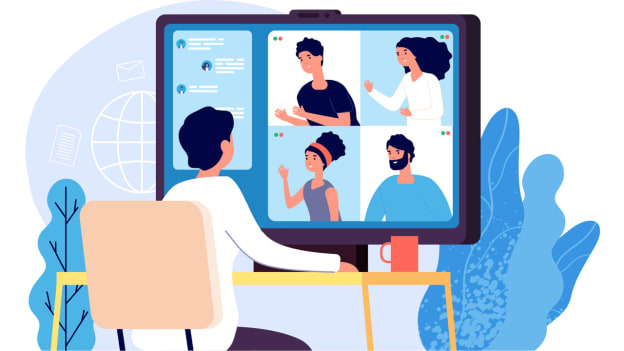Driving productivity and business metrics through HR digitization

If there is one major and visible change that the ongoing pandemic has brought, it is the advent of the digital world – almost in all spheres of our life. Right from corporate to household, digitization seems to establish its footprint almost everywhere. Who would have thought that our kids will become tech savvy in at least learning to operate computers for attending classes at such a tender age!!
Digital workplaces across businesses are growing and use of technology enabled solutions are slowly breaking the barriers of competitive advantage to become a necessity for companies. And when I refer to the businesses and companies at large – it also includes the most important function within any company - Human Resource function. Just like any other business function or process, the Human Resource function also needs to be digitised – not as a stand-alone function but as a result of digital metamorphosis of the organisation as a whole.
Another vital change that the pandemic has brought is that suddenly, enhancing workplace productivity became talk of the town – more via gossip and whispers as nobody wants to prioritise productivity over wellness in this pandemic. But alas, businesses cannot survive without being productive and hence , sooner or later, workforce productivity did get questioned in the corporate world.
Good thing is, business leaders across industries agree that the most strategic productivity hack for any organisation has to be – digital makeover of people processes and Human Resources. Imagine the surge in productivity if HR leaders are equipped with technology enabled solutions to induct, preserve, manage and develop talent.
For Example, a user centric data of people with all relevant information will help business in general and HR in specific to take more informed discussion in talent management. Just as in sales, marketing or for that matter in any other function, data plays a critical role in helping HR Leaders navigate through its people – their demography, location, function and all other relevant details. It is often seen that HR data is isolated in different systems and formats, and this lack in coherence of collating data systematically makes it difficult for HR leaders to connect people strategy with business metrics.
Solution? Using technology-based data management, digital reporting and dashboard systems to support business in taking decisions in this ever-dynamic environment.
Introducing chatbots as an interface of communication to employees about HR processes , policies and systems goes a long way not only to enhance productivity but also employee experience. During the pandemic, HR has frontlined the physical and mental well being of the workforce, to an extent that corporate Stalwarts are now considering a new name for HR leaders and that is CWO i.e Chief Wellness Officer. To effectively connect with employees and go beyond business in ensuring a happy workforce, HR folks need to get some bandwidth from the regular operational activities. Introducing AI based chatbots and automating operational HR activities will provide this bandwidth to them which in turn can be used to create a more happy , engaged and productive workforce. Further, employees will also experience a more enhanced technology driven process interface that will help them become less dependent on others for seeking information on organisation processes and policies.
Not only this, automating learning platforms and digitising key courses will create learning conditions that can be embedded into the flow of work. Organisations will be able to sketch out personalised learning solutions specific to teams/individuals or projects making skills and competency development personalised and individual that can fit into everyday routine.
Another area where HR processes can be digitised is company and employee documents. Tracking employee data in paper form, work contracts, appointment letters and other employee documents not only takes a lot of manual processing and large storage areas but also carries a risk of data loss due to paper becoming old and stale. A technology enabled online data storage can not only help in reducing the physical space required but also minimise the risk of data loss.
When it comes to digitising HR processes, best results come only when an integrated holistic approach is adopted wherein the organisation’s current processes and policies are reviewed keeping in mind the future needs , and then it is seen which integrated technology meets the needs. It is important to sketch a roadmap of technical interventions for the entire organisation and include HR as a subset to the organisation. It is important to identify key processes that affect productivity and need to be automated on priority.
Another tip that can be considered while digitising key people processes is to ensure superior user experience. Too much process automation at the same and complex functional usability may result in poor user experience , defeating the very objective of digitization. When using technology as an enabler, one has to be careful not just to optimise process efficiency but also achieve superior employee experience. Hence involving employees in the decision making, implementation and testing stage , providing adequate training before final implementation will ensure positive user experience.
The recent changes and advancements in enhancing consumer technology has not only surged user experience but also user expectation in terms of faster and efficient delivery. With employees being the internal customers , businesses will have to change outdated systems and processes into technology driven interfaces that satiates the experience of internal customers and helps to drive productivity.
















